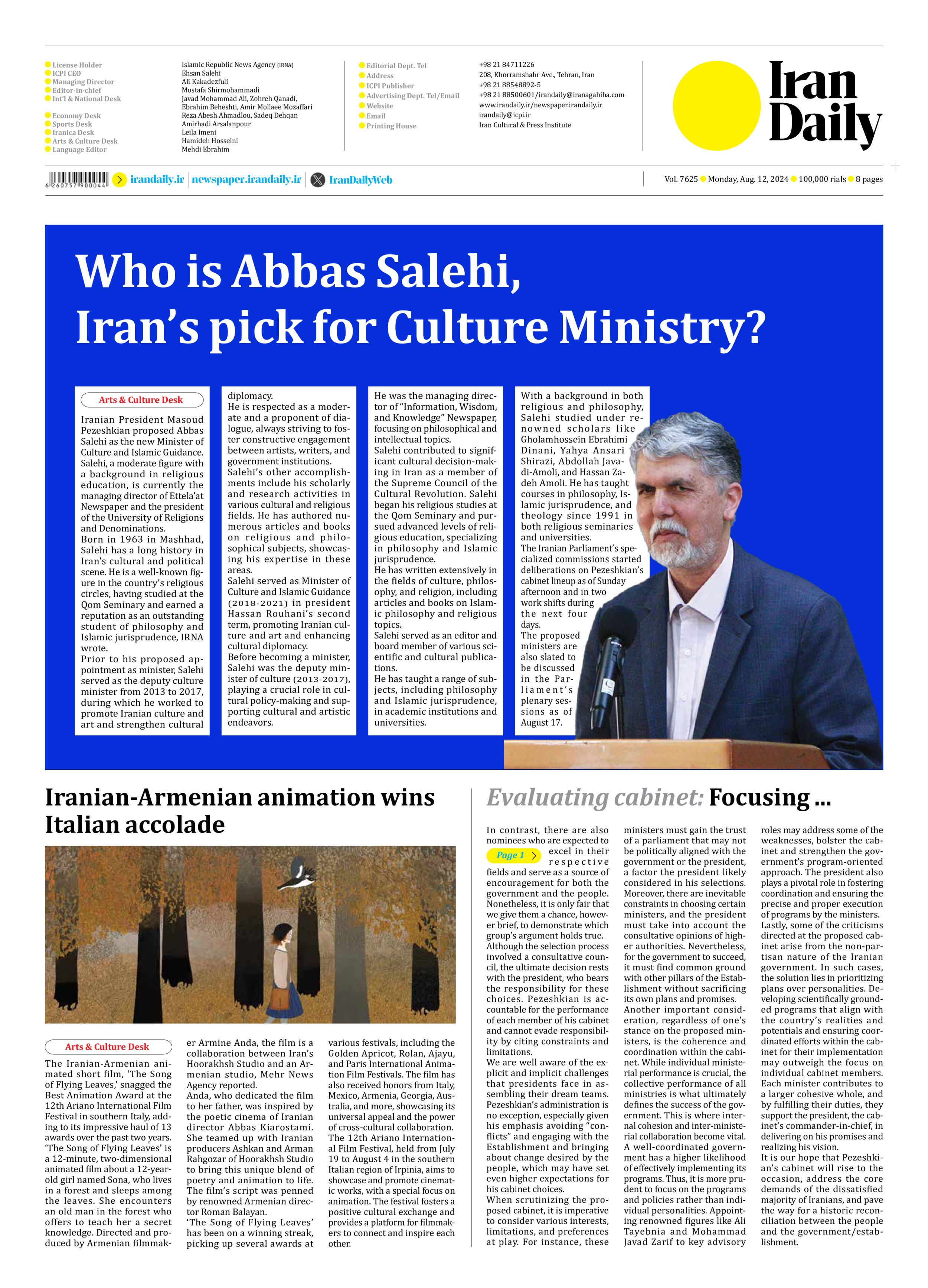
Evaluating cabinet: Focusing ...
Page 1
In contrast, there are also nominees who are expected to excel in their respective fields and serve as a source of encouragement for both the government and the people. Nonetheless, it is only fair that we give them a chance, however brief, to demonstrate which group’s argument holds true.
Although the selection process involved a consultative council, the ultimate decision rests with the president, who bears the responsibility for these choices. Pezeshkian is accountable for the performance of each member of his cabinet and cannot evade responsibility by citing constraints and limitations.
We are well aware of the explicit and implicit challenges that presidents face in assembling their dream teams. Pezeshkian’s administration is no exception, especially given his emphasis avoiding “conflicts” and engaging with the Establishment and bringing about change desired by the people, which may have set even higher expectations for his cabinet choices.
When scrutinizing the proposed cabinet, it is imperative to consider various interests, limitations, and preferences at play. For instance, these ministers must gain the trust of a parliament that may not be politically aligned with the government or the president, a factor the president likely considered in his selections. Moreover, there are inevitable constraints in choosing certain ministers, and the president must take into account the consultative opinions of higher authorities. Nevertheless, for the government to succeed, it must find common ground with other pillars of the Establishment without sacrificing its own plans and promises.
Another important consideration, regardless of one’s stance on the proposed ministers, is the coherence and coordination within the cabinet. While individual ministerial performance is crucial, the collective performance of all ministries is what ultimately defines the success of the government. This is where internal cohesion and inter-ministerial collaboration become vital.
A well-coordinated government has a higher likelihood of effectively implementing its programs. Thus, it is more prudent to focus on the programs and policies rather than individual personalities. Appointing renowned figures like Ali Tayebnia and Mohammad Javad Zarif to key advisory roles may address some of the weaknesses, bolster the cabinet and strengthen the government’s program-oriented approach. The president also plays a pivotal role in fostering coordination and ensuring the precise and proper execution of programs by the ministers.
Lastly, some of the criticisms directed at the proposed cabinet arise from the non-partisan nature of the Iranian government. In such cases, the solution lies in prioritizing plans over personalities. Developing scientifically grounded programs that align with the country’s realities and potentials and ensuring coordinated efforts within the cabinet for their implementation may outweigh the focus on individual cabinet members. Each minister contributes to a larger cohesive whole, and by fulfilling their duties, they support the president, the cabinet’s commander-in-chief, in delivering on his promises and realizing his vision.
It is our hope that Pezeshkian’s cabinet will rise to the occasion, address the core demands of the dissatisfied majority of Iranians, and pave the way for a historic reconciliation between the people and the government/establishment.







